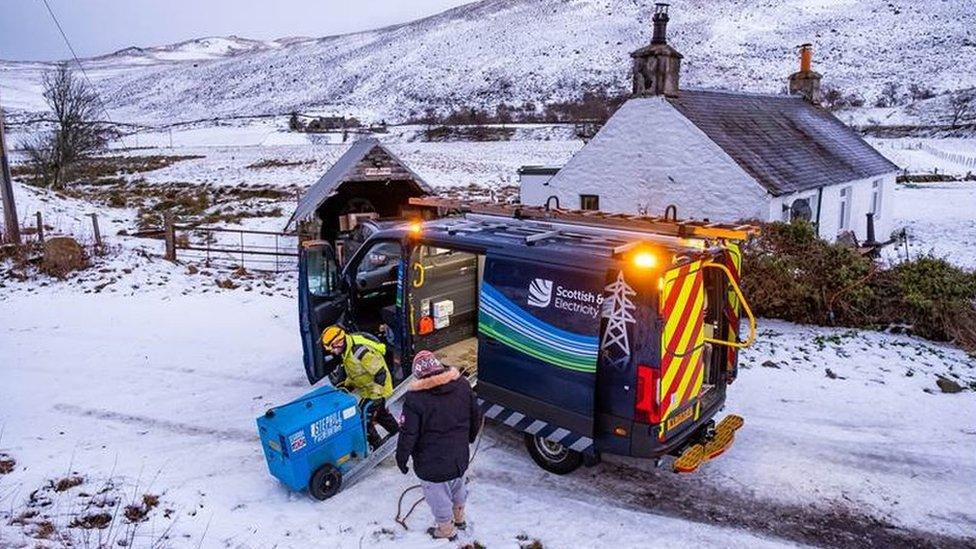Storm Arwen: 'We had to dig in - now I hope things get better'
- Published

Lena Rose endured several nights without power in Aberdeenshire after Storm Arwen
Lena Rose was left without power for five days after Storm Arwen caused devastation across Scotland last year.
As an Ofgem report, external told energy companies to improve their response to storms, she said it could only be hoped things would improve in the future.
The 70-year-old, from Sauchen in Aberdeenshire, said she had lived locally for 40 years but the aftermath was the worst she had experienced.
"You felt a bit isolated, vulnerable," she said. "We just had to dig in."
The storm brought down trees and power lines on 26 November, leaving tens of thousands of homes without electricity.
The north east of Scotland, Dumfries and Galloway and the Scottish Borders were among the areas worst hit.
Aberdeenshire saw wind gusts of 100mph.
Mrs Rose had a coal fire and camping stove to boil water and keep warm while being based in the living room, but the shower could not be used.
"We were out five days," she said. "For a couple of days it wasn't too bad, because we have had power cuts before, but then it got longer and longer.
"Obviously you could not have the lights on, you couldn't have heating on, you couldn't have running hot water, you had to boil everything.
"Communication was the worst, we had no idea how bad the storm had been, and how much damage there was. We just had to dig in.
"They (energy companies) haven't been fined - is it enough? You can only hope that things get better."
She added: "I love trees. After that, I am just wary of trees. I'm kind of scared of trees really now. It does make you wary."
Mrs Rose described the whole experience as "frustrating", but added: "The guys doing the repair work must have had a hell of a job."

Camp stoves were used by some left without electricity in Scotland
Kirsten Bax, who lives near Thornhill in Dumfries and Galloway, went several nights without power during the storm.
She said the criticism of the power firms echoed her own experiences.
'Weren't prepared'
"I absolutely agree that the suppliers need to be better prepared," she said.
"The lack of information and misleading information was very frustrating.
"Also, they clearly weren't prepared for the impact of the storm.
"I hope they follow all the recommendations, given that with global warming such storms are more likely in the future."
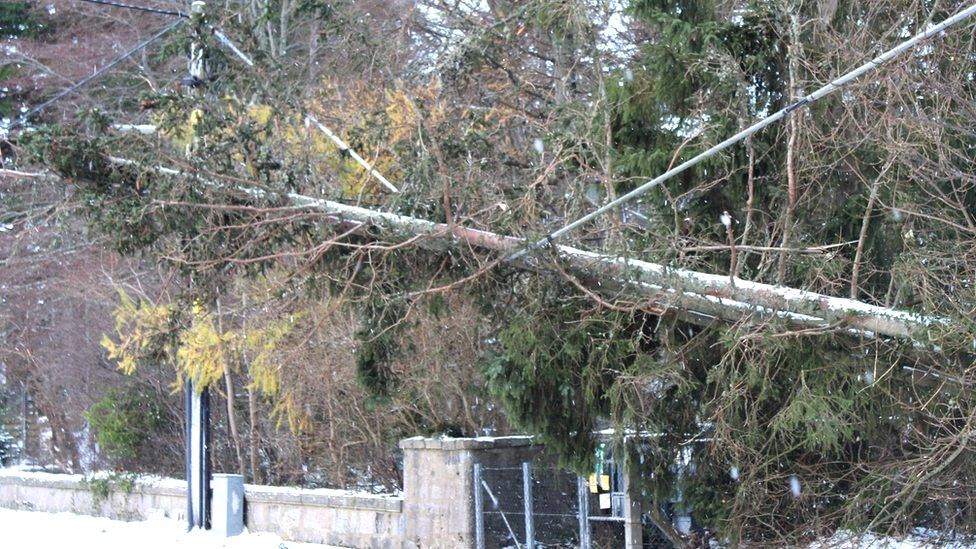
Power lines - including here in Ballater - were brought down by trees during Storm Arwen
In Kirriemuir, Alan Douglas told BBC Radio's Good Morning Scotland programme the storm "seemed a lifetime ago" now.
He was without power for about six days.
'Learned a few lessons'
"The biggest problem I had was communication," he said. "It was the lack of information, you just didn't know what was going to happen."
He added of energy firm criticism: "I actually think they did a very good job. I mean, it was a horrendous storm, I have never seen anything like it. They had huge problems to deal with.
"So I do have some sympathy for them."
He said compensation was paid quickly.
"Hopefully there won't be another Arwen in the foreseeable future," he said. "I do think perhaps SSEN have learned quite a few lessons from this."
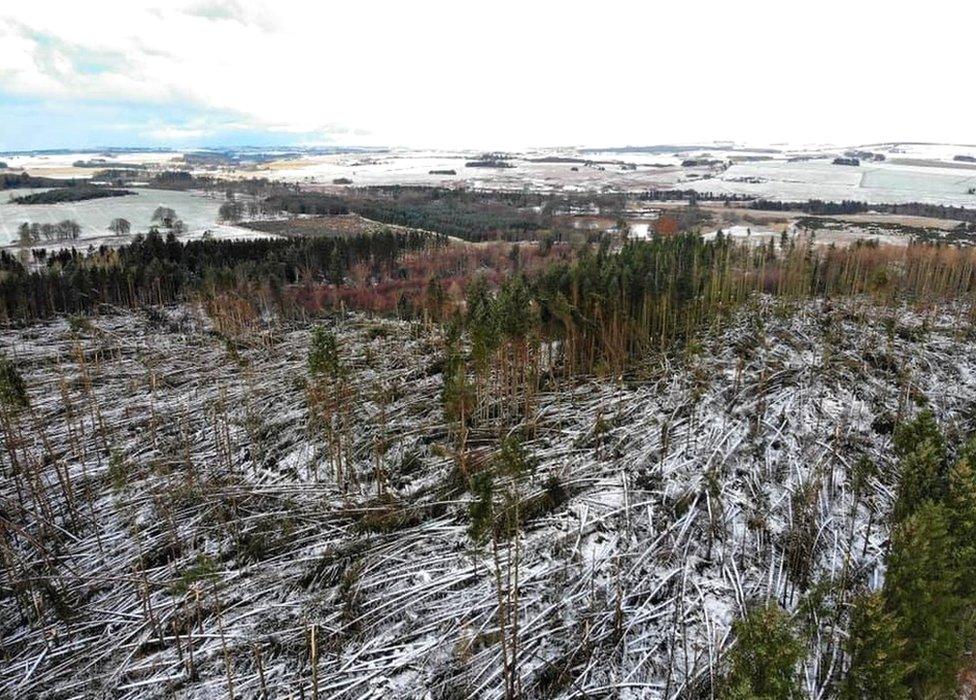
An aerial image from Haddo House in Aberdeenshire showed the extent of the damage to Scottish woodland
Aberdeenshire Council chief executive Jim Savege said the report "will be welcomed by our communities".
He added: "There is a strong focus on prevention in terms of network management, and a better quantification of restoration times.
"Clearly we want to avoid this (future problems) happening where we can do so. I think that focus in trying to ensure the network has greater integrity is going to be welcomed by all."
SSEN said at the time that the damage caused to its network by Storm Arwen was "unprecedented" in some areas, with the north east of Scotland experiencing the equivalent of almost two years' worth of overhead line faults in just one 12-hour period.
It was initially thought 4,000 hectares of woodland in Scotland had been affected but that was later revised to 8,000 hectares - or about 16 million trees.
Related topics
- Published9 June 2022

- Published30 March 2022
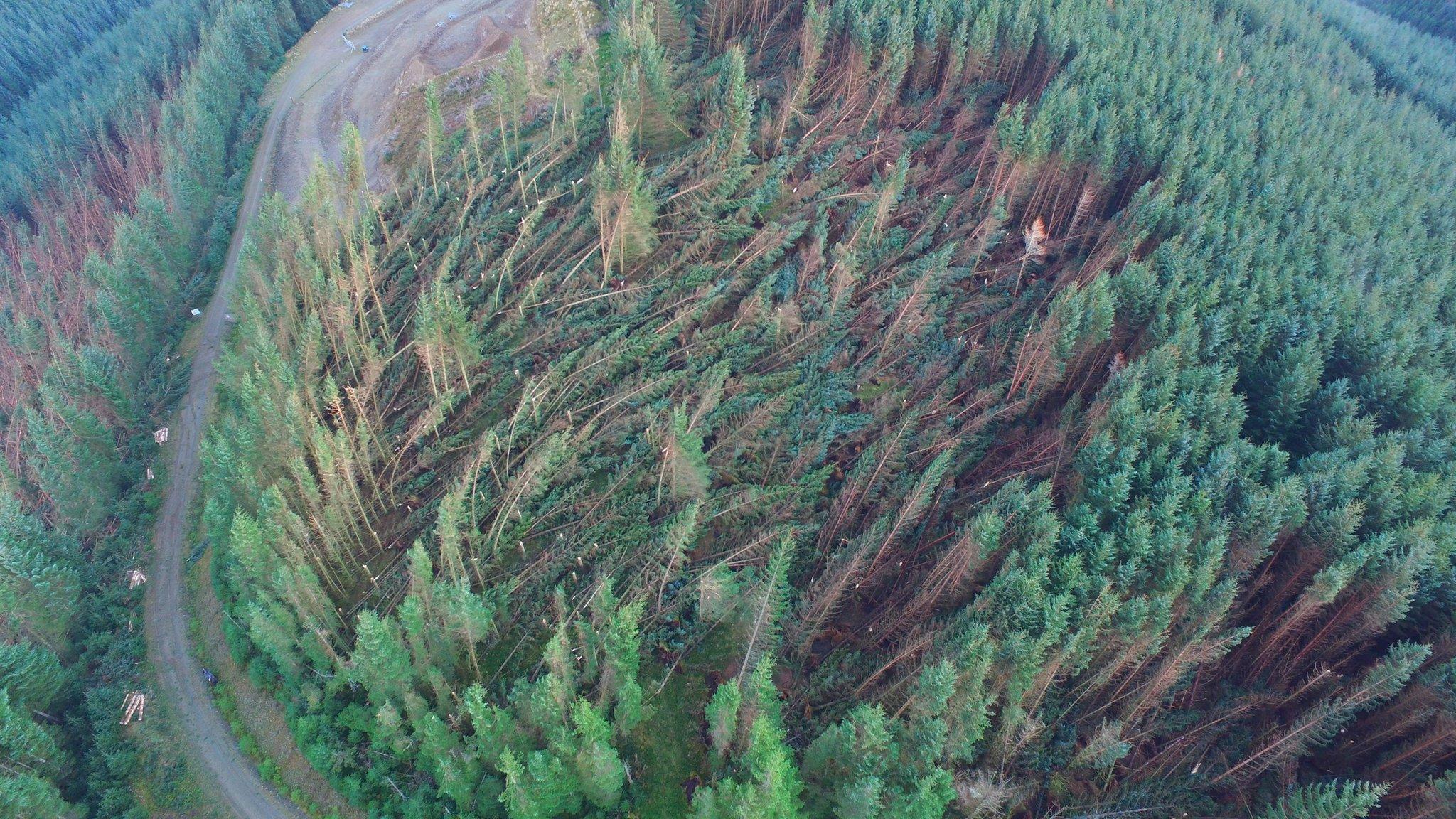
- Published17 February 2022
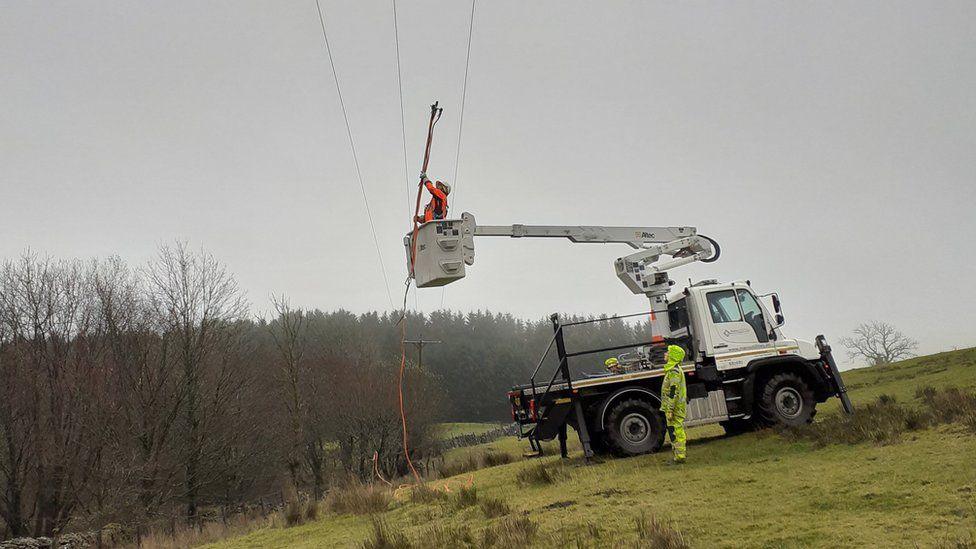
- Published18 January 2022

- Published14 January 2022
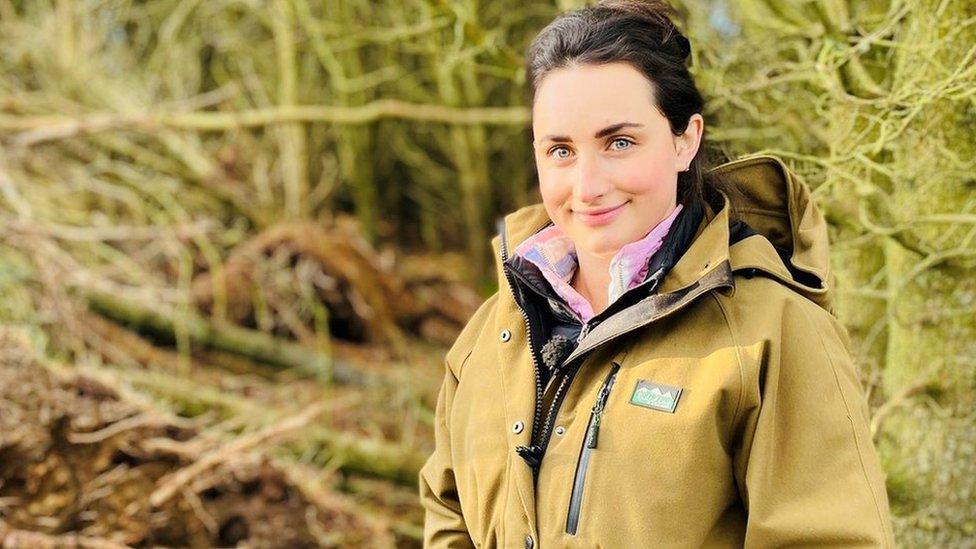
- Published6 December 2021
